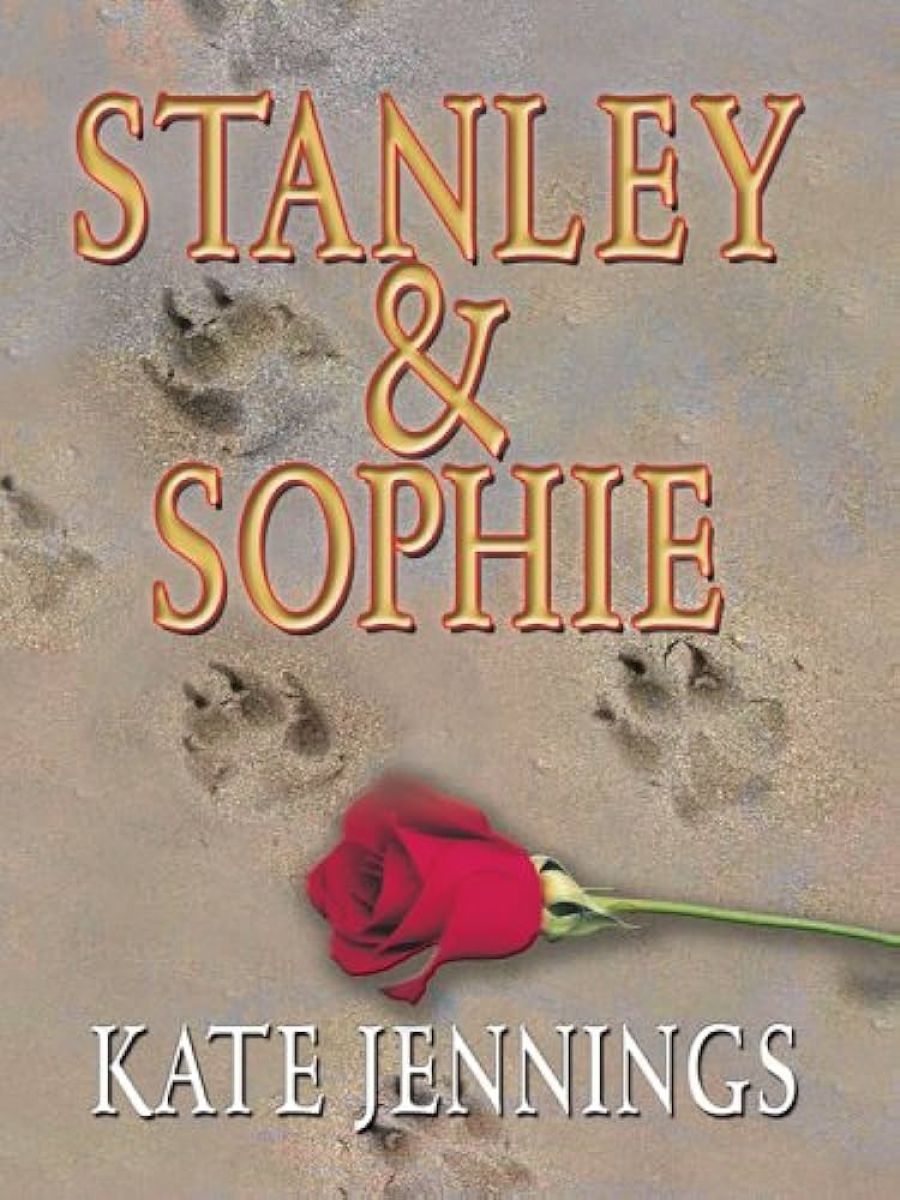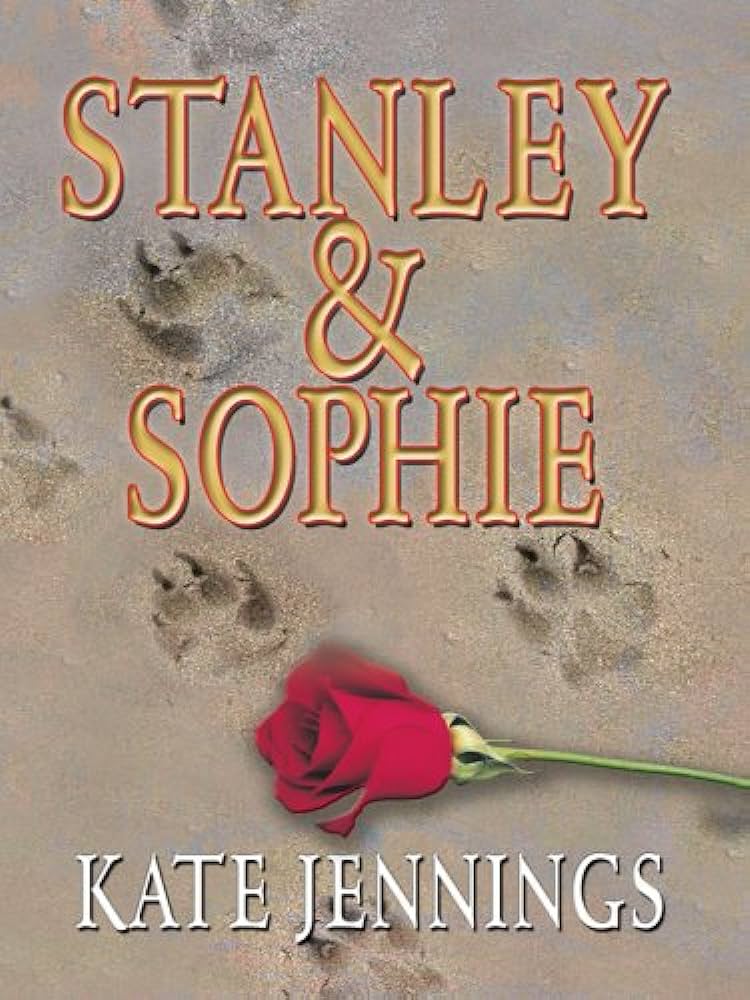
- Free Article: No
- Contents Category: Memoir
- Review Article: Yes
- Article Title: Fur and frippery
- Online Only: No
- Custom Highlight Text:
How many books should an author have under their belt before they indulge in a piece of frippery? When John Steinbeck wrote Travels with Charley (1962), about his journeys across the country with his poodle, it must have been hard not to see it as a comedown from The Grapes of Wrath (1939). Adding the subtitle (‘In Search of America’) can’t have been enough to convince anyone that this was anything more than a writer who knew he was nearing the end of his life and career, going for a drive with his dog. By then, however, Steinbeck was widely regarded as having earned a certain licence.
- Book 1 Title: Stanley and Sophie
- Book 1 Biblio: Knopf, $29.95 pb, 191 pp
- Book 1 Cover Small (400 x 600):

- Book 1 Cover (800 x 1200):

Purely on numbers of pages written, it might appear that Australian writer Kate Jennings has gone early with her whimsical shaggy terrier story. Sure, her début novel, Snake (1996), was critically hailed, and its follow-up, Moral Hazard (2002), had major awards and shortlistings at every turn, but there were barely 500 pages between the two of them. Granted, her poems and essays are beautifully crafted, and her short stories in the collection Women Falling down in the Street (1990) deserve classic status, but does it all add up to enough of an oeuvre to earn her readers’ indulgence? Writers waxing sentimental about how much they love their pets is a genre that, at first glance, feels pretty disposable. Marley and Me (2005) might be a New York Times bestseller, but it is saccharine enough to induce a diabetic coma.
But Jennings is too good a writer to provide the predictable, or the facile, even in a book that seems slighter than her previous contributions. She gives over to the autobiographical elements that ran through her two novels, offering a memoir in which she can lay herself and her passions bare; chiefly two border terriers, the beautifully, lovingly rendered Stanley and Sophie of the book’s title. The Cataloguing in Publication information compiled for the book by the National Library makes for instructive reading: pointing towards the arcs and depths of Stanley and Sophie more baldly and efficiently than the blurb:
Women authors, Australian – Biography.
Border Terrier – Anecdotes.
Monkeys – Anecdotes.
Terrorism – New York (State) – New York.
Terrorism – Indonesia – Bali Island.
This is memoir, animal anecdotes and reflections on terrorism in one slender package. In many respects, this is the same Jennings that was so impressive with Snake and Moral Hazard. The illusory lightness about weighty matters is there. So is the aching honesty and stark self-awareness. What the cataloguing analysis fails to capture is the ways in which this is a book about the loneliness of modern life, the emptiness of ritual and routine, and the ways in which a dog can change all that. After the loss of her husband to Alzheimer’s disease – described in Moral Hazard – Jennings is trying to piece her life back together. Early in Stanley and Sophie, she reflects on her late husband: a man for whom she would have ‘walked a crooked mile’. This is stark, brief, moving stuff, Jennings at her best.
As memoirist she is a natural. A picture rapidly emerges of a woman who prides herself on a lack of sentimentality, on a degree of detachment. She relates these tendencies as a person to her writing: ‘There was a certain satisfaction in all the whittling, the pruning, the goal of minimalism. F. Scott Fitzgerald wrote in a letter to Thomas Wolfe: “You’re a putter-in, and I’m a taker-outer.” Putters-in and takers-outers – as good a way as any to classify writers, and I’m in the latter group. Essence not ornament. I like meaning that is stitched into seams, hidden by linings, secreted in pockets, tucked up sleeves. Implied, not embroidered.’ She emerges as a dry, self-deprecating figure. All of which makes her consuming, at times obsessive, depths of passion for her dogs all the more surprising and enjoyable.
For border terrier fans and owners, in fact for any dog lovers, this book will be an unmitigated delight. Jennings writes like a proud mother, clucking over the dogs’ achievements, following the minutiae of their lives. It is a small topic dealt with in a big way, and in these passages the weight of her feeling drives the book.
Paradoxically, it is in her attempts to demonstrate Stanley and Sophie’s deeper meanings that the book feels a little thin. At times, the search for a ‘bigger picture’ behind the book feels a bit like overeaching. Jennings spends too long citing literary giants who obsessed about dogs, as if she is straining to justify writing the book. Her reflections on terrorism, Thomas Mann and the ‘prose idyll’ are diverting, but don’t really provide any emotional or intellectual resonance. Her trip to Bali, while typically beautiful in execution, lacks the impact of her accounts of a walk around her own apartment. I understand her desire to stress that the book is a reaction to the boiling over of the ‘scummy soup of geopolitical and mercantile imperatives’, but it ultimately felt more like window-dressing than the point of the exercise.
This slight frustration of focus aside, the book is sad and delightful, considered and engaging. Kate Jennings is one of our finest writers. Read this for Jennings’s lovely play with language, her beautiful way with a sentence. She writes: ‘A rhubarb of noisy emotion: a devil’s chorus of fear, blatting rage, birring anxiety, tweedling incredulity, roupy sorrow.’ This is Dr Seuss for grown-ups. Like the rolling, scrapping, demanding balls of fur she describes throughout – at turns playful and proud, affectionate and aloof – the chapters of Stanley and Sophie are short, abrupt and unexpectedly moving. This is not a slight book. At its best it is a personal one.


Comments powered by CComment